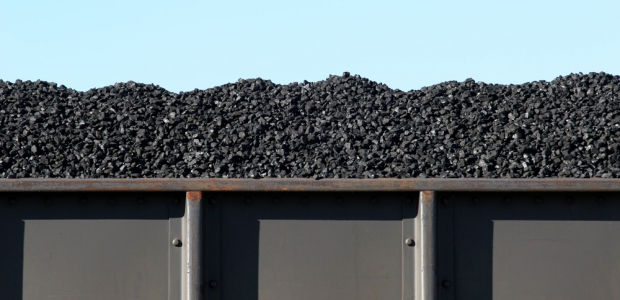
Coal States' Governors Attack President's Climate Plan
"I am extremely disappointed and frustrated by the huge changes the EPA made from the proposed rule. What is being proposed for Kentucky is disastrous – disastrous for our declining coal economy and equally disastrous for our very important manufacturing economy," Kentucky Gov. Steve Beshear said.
Coal states' governors quickly lashed out against President Obama's final clean power plant rule on Aug. 3, a sign that a battle royal over the administration's plan has begun. Governors of Kentucky, West Virginia, and Wyoming responded, as did EPA Administrator Gina McCarthy.
"I am extremely disappointed and frustrated by the huge changes the EPA made from the proposed rule. What is being proposed for Kentucky is disastrous – disastrous for our declining coal economy and equally disastrous for our very important manufacturing economy," Kentucky Gov. Steve Beshear said. "The EPA claimed that it listened to the comments received on the proposed rule for the Clean Power Plan. It is clear from the emissions numbers the EPA has set for Kentucky that the agency did not listen to us. This rule leaves the Commonwealth with few, if any, alternatives to formulate a plan without significant harmful impact to rate payers, manufacturing companies and the overall economy.Attorney General Jack Conway and I will continue to fight this onerous rule in the courts. During my entire term as governor, I have remained steadfast in my support of Kentucky's important coal and manufacturing industries, and the affordable energy and good jobs they provide the Commonwealth and the nation.This is an extensive rule, and we will be meeting with stakeholders to assess its potential impacts. We will, however, continue to explore ways for Kentucky to comply with the rule should it become law, because we believe that a Kentucky specific plan would be better than a federal plan imposed on us."
W.Va.Gov. Earl Ray Tomblin issued a similar statement: "After an initial review, it appears the Environmental Protection Agency has made some changes to the proposed Clean Power Plan rule; however, those limited changes still leave us with proposed regulations that are unreasonable, unrealistic and ultimately unattainable for our state. While those who employ our hardworking miners have urged us to refuse to submit a compliance plan, at this point West Virginia still has not determined whether it will submit any plan to the EPA. As required by House Bill 2004 passed by the Legislature this year, our Department of Environmental Protection will develop a detailed report for the Legislature that includes 'a comprehensive analysis of the effect of the Section 111(d) rule on the state.' In accordance with the new law this analysis, which could not begin until the EPA released its final rule, will be completed within 180 days. While the DEP works on the report required by the Legislature, we continue to review our legal options and are working to determine what a federally developed state implementation plan would involve. I appreciate the ongoing work of DEP Secretary Randy Huffman and his staff, who like me, are committed to putting the interests of West Virginians first."
Wyoming Gov. Matt Mead's statement was brief: "The Clean Power Plan is scientifically flawed and if implemented will not achieve minimum reductions. It is in fact damaging – not just to Wyoming, but the nation. I will continue to fight regulations that are fundamentally bad for Wyoming and exceed the regulatory authority of the federal government."
The president announced EPA's final rule Aug. 3, saying it will cut U.S. carbon pollution from the power sector by 870 million tons, or 32 percent below 2005 levels, in 2030, adding that coal-fired power plants are the largest drivers of climate change in the United States.
"We're proud to finalize our historic Clean Power Plan. It will give our kids and grandkids the cleaner, safer future they deserve. The United States is leading by example today, showing the world that climate action is an incredible economic opportunity to build a stronger foundation for growth," EPA's McCarthy said. "The valuable feedback we received means the final Clean Power Plan is more ambitious yet more achievable, so states can customize plans to achieve their goals in ways that make sense for their communities, businesses, and utilities."